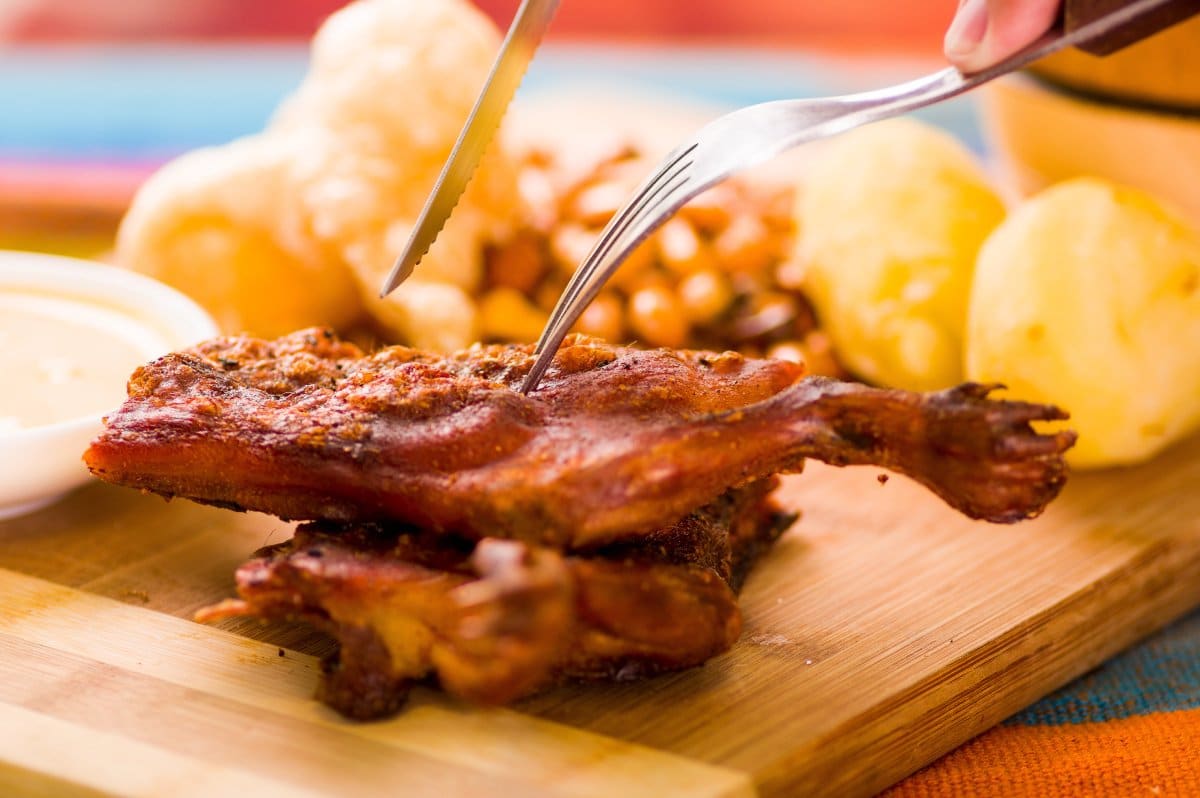Food is an adventure, and sometimes the journey leads to unexpected and bizarre culinary creations. Ever wondered what kind of dishes push the boundaries of normal?
1. Hákarl (Iceland)

Fermented shark that’s buried underground for months, then hung to dry for several more. The result is a pungent, ammonia-scented delicacy that requires a strong palate and even stronger stomach.
2. Balut (Philippines)

A fertilized duck egg with a partially developed embryo inside, boiled and eaten from the shell. This street food favorite is celebrated for its unique texture and high protein content.
3. Casu Marzu (Italy)

Known as “maggot cheese,” this Sardinian specialty involves Pecorino cheese infested with live larvae. The maggots’ digestion process gives the cheese a soft texture and distinct flavor.
4. Escamoles (Mexico)

Often referred to as “insect caviar,” these ant larvae are harvested from agave plant roots and cooked with butter and spices. They are prized for their nutty flavor and creamy texture.
5. Sannakji (South Korea)

Live octopus tentacles that are cut into small pieces and served immediately, still wriggling. The tentacles’ suction cups pose a challenge as they cling to the diner’s mouth.
6. Fugu (Japan)

This pufferfish is lethal if not prepared correctly, containing potent tetrodotoxin. Only licensed chefs can serve this risky dish, which is prized for its delicate flavor.
7. Surströmming (Sweden)

Fermented herring known for its overpowering odor, often considered one of the smelliest foods in the world. It’s traditionally eaten with flatbread, potatoes, and onions to balance its intense flavor.
8. Huitlacoche (Mexico)

Also known as corn smut, this fungus infects ears of corn, turning kernels into swollen, grayish-black growths. It’s considered a delicacy and often used in tacos and quesadillas for its earthy taste.
9. Century Egg (China)

Also called a hundred-year egg, these preserved eggs are made by covering duck, chicken, or quail eggs in a mixture of clay, ash, and quicklime. The process turns the yolk dark green and the white a translucent brown.
10. Jellied Moose Nose (Canada)

A traditional dish among indigenous Canadians, involving boiling a moose nose until the flesh becomes gelatinous. It’s then cooled and sliced, often served as an appetizer.
11. Lutefisk (Norway)

Dried whitefish (usually cod) soaked in a lye solution until it reaches a jelly-like consistency. This peculiar preparation gives it a distinct taste and texture, often served during the holiday season.
12. Kopi Luwak (Indonesia)

Coffee made from beans that have been eaten and excreted by civet cats. The digestion process supposedly enhances the coffee’s flavor, making it one of the most expensive coffees in the world.
13. Rocky Mountain Oysters (United States)

Despite the name, these are not oysters but bull testicles, usually deep-fried and served as an appetizer. This cowboy delicacy is particularly popular in the American West.
14. Stargazy Pie (England)

A Cornish dish featuring whole sardines baked into a pie, their heads poking out through the crust. This whimsical presentation symbolizes the fish gazing at the stars.
15. Shirako (Japan)

This dish features the milt, or sperm sacs, of male fish such as cod or pufferfish. It’s prized for its creamy texture and delicate flavor, often served raw or lightly cooked.
16. Fruit Bat Soup (Palau)

A traditional soup made with whole fruit bats, known for its rich broth and distinctive flavor. The bats are often boiled in coconut milk with ginger and spices.
17. Mopane Worms (Southern Africa)

Caterpillars of the Emperor moth, often dried or smoked and then rehydrated for cooking. They are a significant source of protein and a staple in many rural diets.
18. Kiviak (Greenland)

A winter delicacy made by fermenting small seabirds called auks inside a seal skin for several months. The result is a strong, pungent dish enjoyed during special occasions.
19. Fried Tarantulas (Cambodia)

These crispy arachnids are a popular snack, often seasoned with salt and garlic. They’re said to taste somewhat like crab, with a crunchy exterior and a soft inside.
20. Durian (Southeast Asia)

This spiky fruit is notorious for its strong odor, often described as a mix of rotten onions and turpentine. Despite the smell, its creamy flesh is adored by many for its unique flavor.
21. Cuy (Peru)

Also known as guinea pig, this small rodent is roasted or fried whole and served with sides like potatoes and corn. It’s a traditional Andean dish, valued for its tender, flavorful meat.
Ready to Expand Your Palate?

Exploring these unconventional dishes can be a daring culinary adventure. Are you brave enough to step out of your comfort zone and taste the extraordinary?
The post Dishes That Defy Logic: Unconventional Foods from Around the Globe first appeared on Mama Say What?!
Featured Image Credit: Shutterstock / Fotos593.
For transparency, this content was partly developed with AI assistance and carefully curated by an experienced editor to be informative and ensure accuracy.





